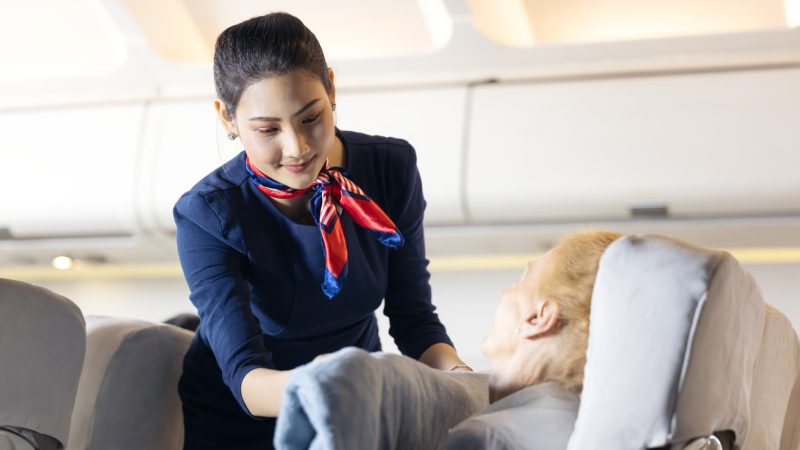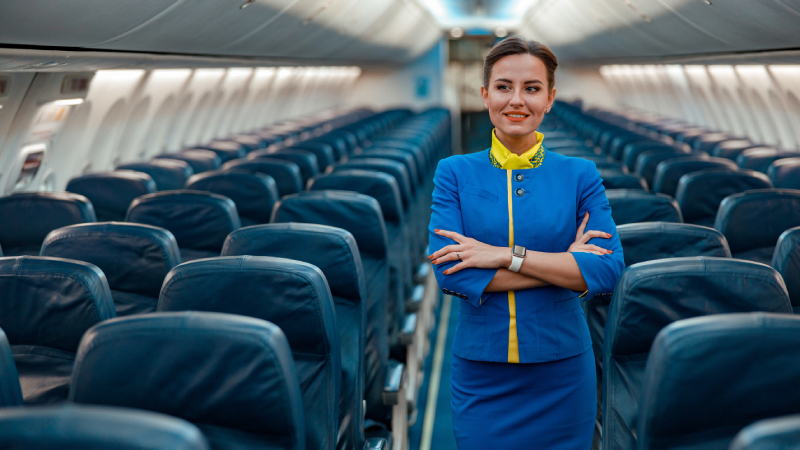Why Aviation Careers Are Rising
Airlines are building routes, tourism is recovering, and passenger demands are growing. Such changes offer new prospects to people who attend aviation training programs in Canada. The present-day cabin crew job is more sophisticated than ever – a combination of safety, service, and leadership.
Flight attendants are specifically trained to:
- Make sure passengers are comfortable and safe during the journey
- Handle emergency procedures with calm precision
- Deliver high-quality customer service across cultures
- Communicate effectively under any situation
Inside a Canadian Flight Attendant Course
A Canadian flight attendant course typically covers in-flight operations, aviation safety, first aid, and communication techniques. The learners are provided with practical experience by simulation-based exercises that mimic the real airline environments. The goal is to equip these students to not only hold a single position, but also a career in global aviation.
Career Outlook for Flight Attendants
The graduates of aviation training programs Canada are entering a job market where airlines are competing to acquire quality personnel. The combination of passenger growth, fleet expansion, and retirements is creating continuous hiring waves. According to recent labor data, cabin crew demand in North America is projected to rise steadily through 2035, with career paths also open in:
- Airport operations and ground services
- Airline customer support and logistics
- Hospitality and travel coordination
Summary
The flight attendant training Canada institutions offer equips students with real-world skills for a growing industry. Flight attendant courses prepare graduates to directly enter into professional aviation jobs, on the ground and in the air.
Eton College offers one of such industry-specific programs that integrates theoretical with practical training – assisting future professionals to take off to successful careers in the global aviation industry.



